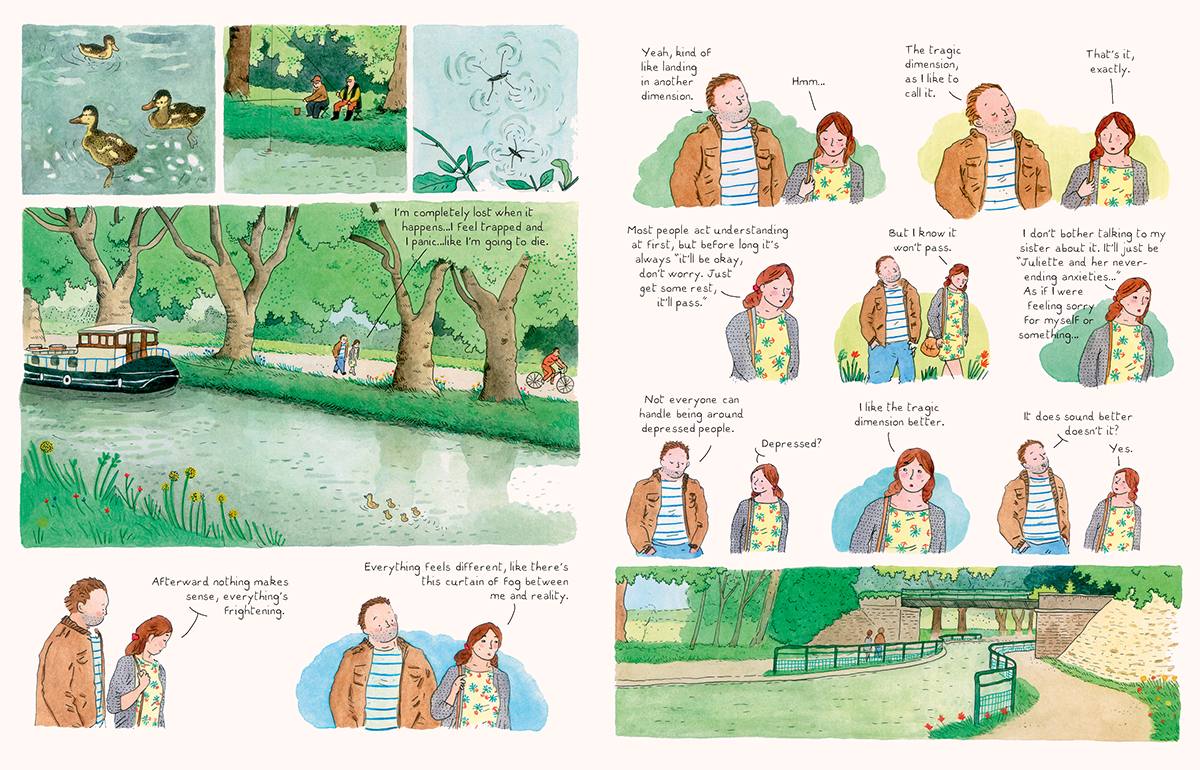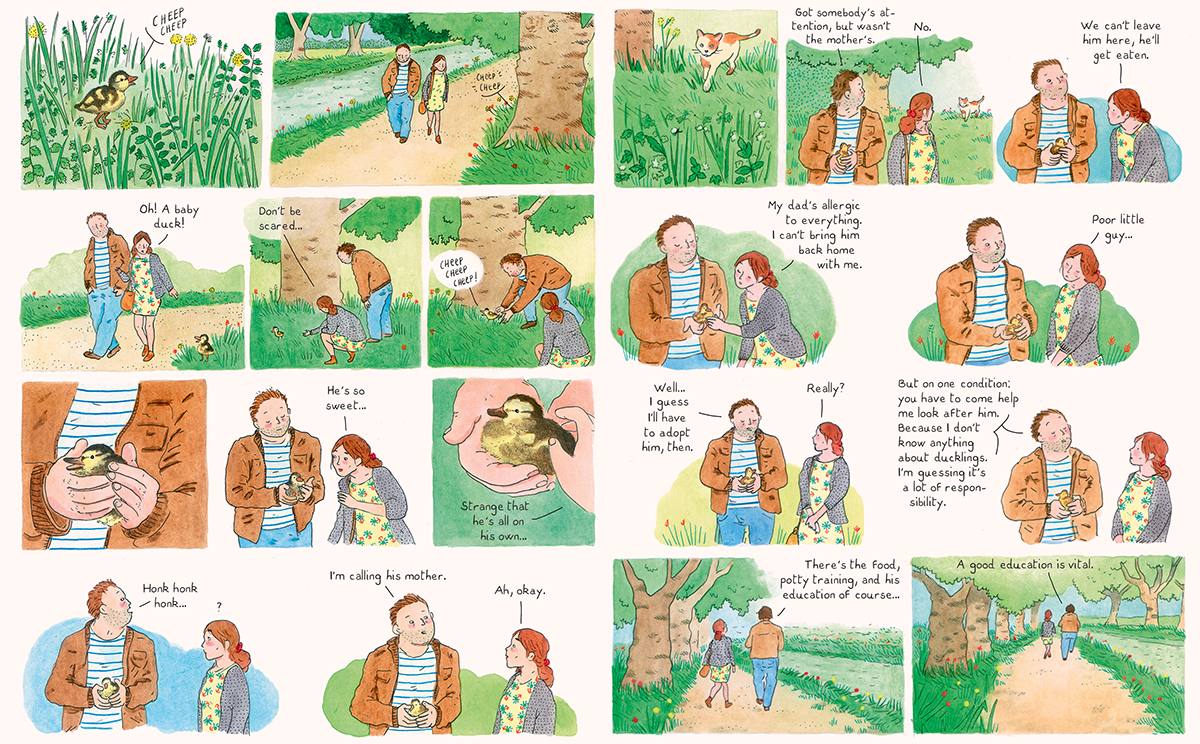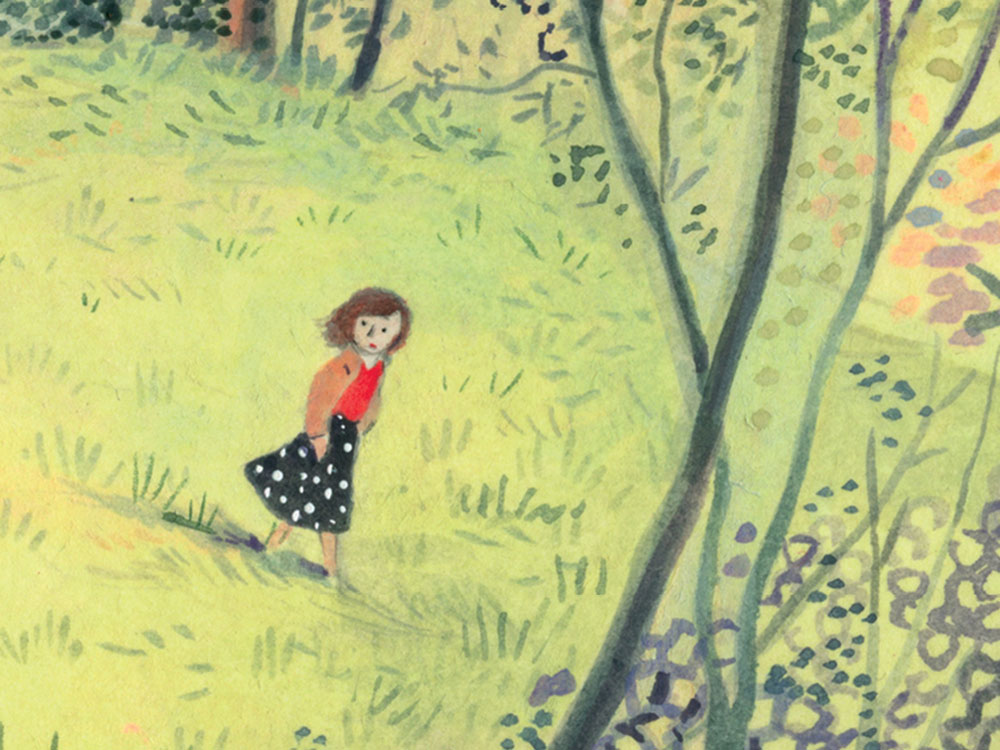- Juliette
- Drawn & Quarterly (2023)
Juliette is on the run from her life. Beset by crippling anxiety, the titular character of Camille Jourdy’s exquisite new graphic novel returns to her small town and to the bosom of her complicated family, seemingly in hope of a reprieve from her life in Paris.
While every family is complicated in its own way, Juliette and her kin are particularly tangled.
Her parents, long divorced but still driven to torment each other, are intent on finding love, just with other people. While her mother dabbles in painting and younger men, her father is convinced that he is developing dementia. Meanwhile, the family’s aging grandmother doesn’t recognize anyone and has a tendency to chew on the tablecloth at dinner parties.
Juliette’s older sister Marylou is working a menial job, juggling two kids and a husband, as well as a lover who works at a costume shop and visits her in the guises of a bear, a ghost and a giant white rabbit. Their affair, consisting of joyous uninhibited sex in the backyard greenhouse, takes place only on Thursday afternoons.
Jourdy renders these encounters in glorious shades of ripe pink flesh and the deepest green of high summer.
Living with her father, Juliette spends her days wandering the town, seemingly in search of a deeper connection, a portal or pathway back to a place of contentment and peace. It’s during one of these extended wanders that she visits the apartment that used to be her childhood home, meeting with the current tenant, a man named Polux.

A regular of the local dive bar, Polux mostly whiles away the hours drifting into the lassitude of drink, spending his days with the occasional hook up and silly bets, seemingly dissolving into a state of permanent ennui.
But when Juliette and Polux accidentally adopt an orphaned duckling, things take an unexpected turn. The possibility of a different future peeps out, like a bit of sunlight between the clouds.

The book is entitled Juliette, floating in the centre of the cover in a grassy clearing is a second, possibly alternative name: or, the Ghosts Return in the Spring.
It’s this second element that provides an indication of the other core themes of the book. Namely disappointment, the grief of dwindling dreams, the encroaching shadow of mortality and time passing. Or as Juliette and Polux allude to, the “tragic dimension.” While there is some crepuscular sadness here, the meat of the story is marbled with rich veins of humour, wonder and the loving touches that can only come from close observation.
Aleshia Jensen’s precise translation from the original French captures the nuances of how families talk to each other, alternating between sharpness and hilarity, as well as the cadences of small-town life.
Filled with the dappled brightness of happiness and suffering, Juliette is suffused with all the heartbreaking foibles of us humans and our ongoing quests for love. ![]()
















Tyee Commenting Guidelines
Comments that violate guidelines risk being deleted, and violations may result in a temporary or permanent user ban. Maintain the spirit of good conversation to stay in the discussion and be patient with moderators. Comments are reviewed regularly but not in real time.
Do:
Do not: